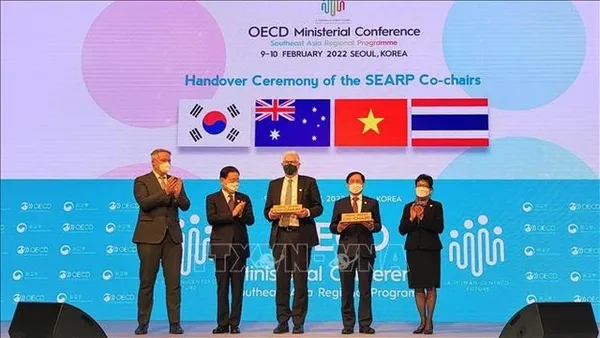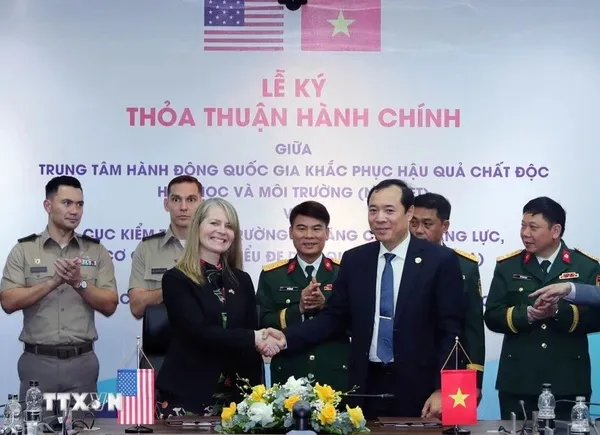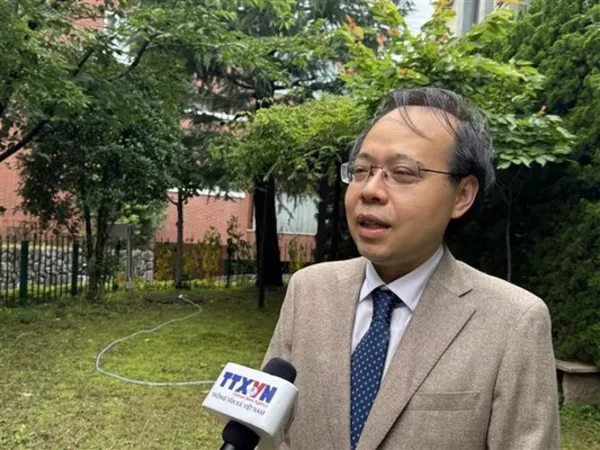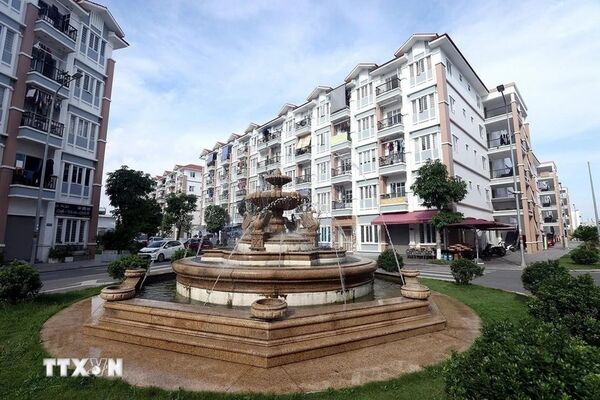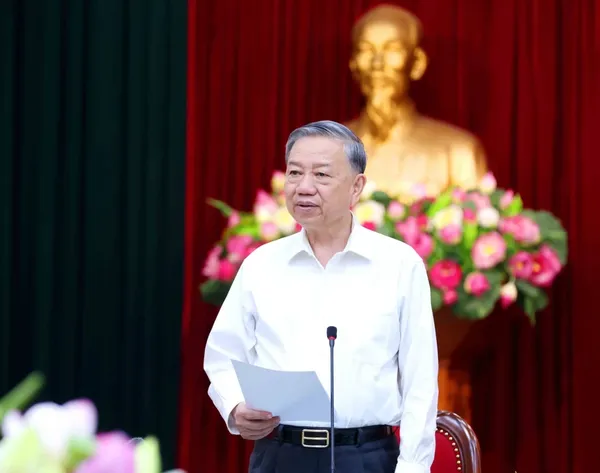 |
| The master plan aims to boost the annual growth rate of e-commerce retail sales to between 20% and 30% (Illustrative imgae. Photo: VNA) |
Hanoi (VNA) - The Ministry of Industry and Trade (MoIT) has officially issued Decision No. 1568/QD-BCT, approving the master plan for national e-commerce development for the 2026–2030 period.
The plan positions e-commerce as a pioneering sector of the digital economy, playing a key role in transforming the country’s growth model, boosting competitiveness, and promoting sustainable development.
It is closely aligned with national strategic initiatives, including those on digital transformation, digital economy and digital society, and sector-specific programmes led by the MoIT. The overarching aim is to optimise the entire value chain from production to consumption through advanced technological solutions, while ensuring a balance between economic progress, social equity, and environmental protection.
A notable feature of the plan is the emphasis on developing a unified and efficient e-commerce ecosystem across the country. This includes efforts to strengthen regional and international linkages, ensuring that resources are mobilised and utilised effectively.
The plan also highlights the importance of coordinated action by political bodies and local authorities.
One of the core objectives is to enhance the value and global competitiveness of Vietnam’s e-commerce industry, securing its position among the world’s fastest-growing digital economies.
In addition, the plan sets out a number of priorities for expanding the online market for Vietnamese products both domestically and internationally. It seeks to close the development gap between urban and rural areas and to promote a shift toward a greener, circular e-commerce model that contributes to a fair and sustainable society.
The government is targeting an increase in the proportion of adults shopping online to 70%. It also aims to boost the annual growth rate of e-commerce retail sales to between 20% and 30%, with the sector accounting for 20% of the country’s total retail turnover. Furthermore, efforts will be made to reduce the proportion of websites violating consumer rights to between 5-10%.
In terms of enterprise development, the plan outlines a series of targets. By 2030, 70% of businesses in Vietnam are expected to adopt e-commerce in their operations. All commercial transactions are to be accompanied by electronic invoices, and 80 % of payment transactions are to be conducted without the use of cash. The government also expects that 60% of small and medium-sized enterprises (SMEs) will be operating on e-commerce platforms.
Regional equality in e-commerce development is also a priority. The plan seeks to ensure that at least half of all business-to-consumer (B2C) transactions take place outside of Hanoi and Ho Chi Minh City. In addition, it aims for 60% of communes and equivalent local administrative units to have online sellers. It also encourages leveraging the unique advantages of different regions, such as raw materials, production capabilities, logistics networks, and local talent, to promote regionally integrated e-commerce systems.
Sustainability forms a cornerstone of the strategy, with specific environmental targets. The plan sets a goal to reduce the use of plastic packaging to no more than 45 % and to increase the share of recycled packaging to 50 %. It also aims for at least 40 % of e-commerce logistics businesses to use clean energy in their operations. Additionally, 50 % of enterprises will be required to adopt green packaging standards.
Human resources development is also a vital component of the strategy. The Government aims for 60% of higher education and vocational training institutions to offer programmes related to e-commerce, along with 1 million participants across various training initiatives.
To deliver on these ambitions, the master plan outlines six focus areas - developing and refining regulatory frameworks and market policies for e-commerce; strengthening digital, logistics, and cashless payment systems to support sustainable growth; building digital platforms for both state management and a green, resilient e-commerce market; leveraging local advantages in resources and talent for integrated e-commerce ecosystems; improving e-commerce adoption among businesses, households, and individuals; and expanding global partnerships to adopt advanced standards, access new technologies, and enter international markets./.



